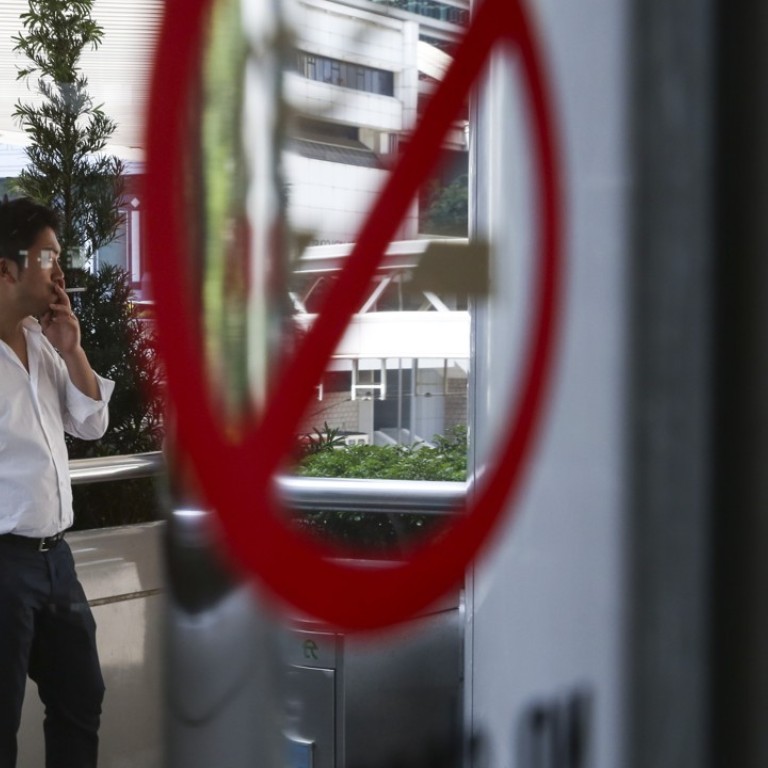
Smoking ban fails to butt out the problem
An investigation by the Ombudsman into the city’s smoking ban has revealed the legislation is neither comprehensive nor firmly enforced. A thorough review is called for
Hong Kong has some legislation that appears to have been put aside or is being enforced half-heartedly. The smoking ban is a case in point. Years after the indoor ban was widened to cover some outdoor premises, the momentum in enforcement is somewhat losing steam.
An investigation by the city’s maladministration watchdog found that the problem was rooted in a series of systemic issues. Over the last five years, the Tobacco Control Office received an annual 17,000 to 23,000 complaints and conducted 27,000 to 30,000 inspections. The number of summons and fixed penalties issued hover around 160 to 230 and 7,700 to 8,600 a year respectively. Considering the team has 79 officers, the numbers do not look too bad at first glance. It may even be tempting to commend them for doing a good job.
But a closer examination by the Ombudsman revealed a different picture. Intriguingly, most of the fixed penalties were issued during day shifts, raising concerns that illegal smoking at bars and restaurants in the evenings had been let off the hook. An inspection of the rosters in November and December of 2016 found that officers were generally off duty when smoking offences tend to be most prevalent during peak night hours.
This was not helped when the office had an unusually high turnover rate of 16.5 per cent in 2015-16. Some departments with enforcement powers also failed to set a good example in performing their duties as venue managers. The prosecution numbers by these departments were unacceptably low, according to the watchdog.
Indeed, the law has been rendered less effective when owners of the premises have no liability in condoning customers or employees flouting the smoking ban. We are lagging behind countries like Canada, Australia and Singapore in extending our law to cover venue managers. The investigation by the Ombudsman has underlined the need to tighten the ordinance.
It is not much of a law if it is neither comprehensive nor firmly enforced. The ombudsman’s probe suggests that the changes implemented over the past 15 years still have much room for improvement. A thorough review is called for.

